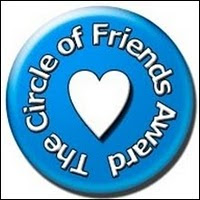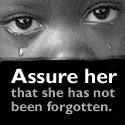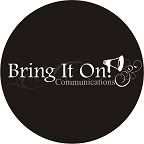Drug addiction and self destructive behavior not only affect the person, but those choices also affect the people with whom they are close. It is not every day that we get a first-person view from the mother of a son who is struggling with these issues. We get this glimpse in Brenda Rhodes’ book, ‘Someone’s Son: A Mother’s Fight for her Gay, Drug Addicted Son .’
.’
Here is the synopsis of this compelling book :
:
Sexual molestation…addiction…homosexuality…HIV/AIDS…illness and hospitalization…death.
Sadly, these markers on life’s road are familiar ones. Brenda Rhodes knows them well. In Someone’s Son , Brenda describes how she watched her sensitive, creative son, Ronal Paul, self-destruct as he traveled down this path. She seemed powerless to pull him back to safety.
, Brenda describes how she watched her sensitive, creative son, Ronal Paul, self-destruct as he traveled down this path. She seemed powerless to pull him back to safety.
Someone’s Son is a memoir of personal tragedy, but it’s more than that. It’s an account of God’s faithful love for a prodigal. Beginning with her own history, Rhodes unflinchingly writes of the years she strayed away from God. At the end of her resources, she heard Him urge her to let Him be God in her and her son’s lives. She did, and she found hope at the end of the road.
Someone’s Son will touch your heart, stir your faith, and awaken your concern for those struggling with addiction and other serious issues. It will leave you with the confidence that when you encounter someone like Ronal Paul, you’ll realize he or she is not just another drug addict or AIDS patient. She’s someone’s daughter – and he’s someone’s son.
Here is the biography of this author:
Brenda Rhodes is a retired co-owner of a successful family business. She encountered the mighty hand of God during the hardest struggle of her life –watching her beloved son self-destruct and die.
Having experienced deep sorrow, Rhodes sought a way to help others triumph over pain. Today she is a Stephen Minister in her local church’s Stephen Ministry, a one-to-one ministry to people in crisis. She lives in a Southern-style country home in Rockwall, Texas, that she often opens to visiting missionaries, and she enjoys her family and friends (as well as her wraparound porch and her cats).
The book opens on a heartbreaking note:
opens on a heartbreaking note:
The message on my answering machine on Sunday, December 4, 2005, obliterated my already shaky world. “Mom, I’m sick,” the voice said. “Can you come and get me? I can’t even get a drink of water. Call me.”
What now? Ronal Paul, my thirty-four-year-old son, had hit rock bottom so many times I had lost count. His life had become one mess after another – a crystal-meth drug addiction, which led to all sorts of risky behaviors, and now AIDS – messes I had continued to clean up. But I had grown weary of his pleas. I called my close friend, Linda, who had also left a message. “I know it sounds awful,” I told her, “but I don’t want to call him back.” Having walked through this eight-year journey with me, she understood.
In that moment of desperate fatigue over my prodigal son’s journey, I had no idea that twenty-four days later Ronal Paul, my only son, would be dead in a Dallas hospital.
But God knew. With my son’s weak voice echoing in my ears, I asked God to clarify whether Ronal Paul was crying wolf or if he really needed me. I knew I had to call him back. (pp. 1-2)
That wrenched my heart.
Brenda had to deal with relative’s dysfunction from an early age:
Today, my mother would probably be diagnosed as bipolar, with a hefty dose of depression and paranoia. Her own mother, my Grandma Nichols, had been an unloving, mean-spirited woman, who often told her that she was never wanted. Mother loved her father, but he was seldom around. She grew up with money but lived in a very unhappy family.
When I think of my mother, I am reminded of that nursery rhyme:
There was a little girl,
Who had a little curl,
Right in the middle of her forehead.
When she was good,
She was very good indeed,
But when she was bad she was horrid.
Mother was a very pretty lady – petite (a trait I did not inherit), quick-witted, and funny. But I don’t think she liked herself, so she had trouble liking others in a healthy manner. She had flashes of pure brilliance sometimes, during which her shining face instigated fun and laughter, but her unpredictability set us all on edge. She could be the life of the party or ruin a party in a minute. She took great pride in her appearance but got mad when people told her she looked good. “Well, I certainly don’t feel good,” she would say. “I wish I felt half as people say I look.”
Mother had a need to tell everyone her problems, down to the very last detail. Health issues came first, and then came the things that involved me, Ronnie [Brenda’s brother], or Daddy. In her eyes, we could never do right. She had so much to be thankful for but could not seem to appreciate her life. Sad. (pp. 5-6)
That description reminded me of a family member; it gives me a more compassionate insight into that person.
Brenda went on to marry a bad boy with James Dean looks, Bobby. They had two children, Wendi and Ronal Paul. Bobby’s mother, Frances, and sister, Gaila, favored Wendi over Ronal Paul, and their favoritism was unmistakable. This affected how Brenda treated Ronal Paul:
Gaila permitted her kids and Wendi to do anything they wanted, but she ruthlessly corrected Ronal Paul. Her sons would hit him, and he would take it. If he hit back, she got furious.
“You can’t treat him that way,” I told her. “You can’t just correct him and let everyone else get away with everything. He doesn’t deserve that.”
“I don’t know what you’re talking about,” she replied. “I’ve never done that!” Many years later, she apologized to him and to me for her mistreatment.
I tried to make it up to him with my love, but I smothered him, protecting him from their obvious and painful favoritism. I have often said that my biggest mistake with Ronal Paul became loving him too much. He was my joy, my confidante my rock. He was such a sweet, easygoing little guy, always making the best of every situation. And he loved everything and everyone. (pp. 24-25)
Bobby was incarcerated often during Ronal Paul’s childhood; his role models were all women:
Since circumstances kept him surrounded by women, his friends during his growing-up years were almost exclusively girls. This progressed to high school, where girls seemed to follow him around. Wendi used to say he’d make a great husband, considering his sensitivity and artistic bent, his tender heart.
But throughout all this, he didn’t take to boy things. When the other boys in the family enjoying hunting and sports, it just didn’t seem to be his thing. Protecting was. Once, after staying up too late watching infomercials as a teen, he took my credit card and made a payment to help orphans. He told me the next morning what he had done, with tears in his eyes, still sad for the fly-infested hungry orphans. That’s the kind of tenderhearted kid he was. (p. 25)
Brenda was a church goer and Christ follower until a pivotal event in her life:
Funny how you can recount the very moment you backed away from God. For me it was September 29, 1976. When Daddy left the earth, he took my heart with him – and my desire to follow my heavenly Father. How could God do this? Daddy loved life more than anyone I’d ever known. We all loved him and needed him. My kids needed their grandfather, especially Ronal Paul. He never stopped missing his Papaw. His death wasn’t fair.
For twenty-three years, starting from the day Linda told me Daddy died, I consciously rebelled. I made a choice to live my life as I chose. I didn’t need him anymore. I was just fine by myself. Daddy-less, but fine. (p. 34)
At the age of twenty one, Ronal Paul revealed to his mother and sister that he
was gay. Brenda’s reaction was interesting:
“You know? How?” he asked.
Wendi interrupted. “I didn’t know. How did you know?”
“I’ve suspected for a long time. I’m not surprised, but I do have a question.” I looked at Ronal Paul. “Is this a choice?”
“No, Mom. I wouldn’t choose this. It’s who I am.”
I hugged him and told him I loved him, and nothing would ever change that.
I am sure we continued to talk, but I don’t remember what we said, except that we were all concerned how Ronnie and his son Eddie would respond.
I accepted his admission as the world does these days – as an alternate lifestyle. My son was a fine young man – honest, caring, hard working, dependable, loving – the same wonderful son I had always loved deeply. I hoped he would find one special man and be happy the rest of his life. (p. 46)
The next several years found Ronal Paul in a downward spiral, with an HIV positive status, risky sexual behavior, and addictions to crystal meth and ecstasy. His behavior was tearing apart his mother and the rest of the family. This heartbreak took Brenda back to her Savior:
…I gave up my twenty-something-year rebellion against God and prayed right in the car, “God, I plead the blood of Jesus over my son and over my family.”
The words sounded strange on my tongue, but I reasoned, I’ve tried everything else. It can’t hurt. I continued to cry and pray, begging God to help me. “Please, God, if you hear me, I plead the blood of Jesus over my family. Please help me – please.”
Close to home, I spied the large, white, stone buffalo at the entrance to one of our town’s newly built subdivisions. That’s the moment I heard the voice.
“Brenda,” the voice said, as clear as day.
Was that an audible voice? I looked around the car, even outside. My crying stopped. I am not sure if I kept breathing or not, as the atmosphere in the car stilled.
“Let. Me. Be. God,” the voice said.
In that second, I realized God was speaking directly to me! He reassured me that he did hear me, and if I gave control and followed his ways, he would shoulder the rest. (pp. 82-83)
Even since then, the word rejoice became Brenda’s special gift from the Lord. Philippians 4:4-7 became her life verse:
This is what it says to me: Rejoice. Praise God. Again rejoice. Praise God always! Let your love of Christ be seen by everyone; he is always near. Don’t worry about anything, Brenda Lynn, but in all things, pray and pray some more, with thanks to God – and you will see that the peace of God, which is beyond understanding, will protect your heart and your mind because of God’s Son, your Savior, Christ Jesus. (p. 88)
As the years went on, there was more self-destructive behavior on Ronal Paul’s part. In the end, there were restored family relationships, and Brenda was assured by Ronal Paul that they would be reunited in heaven some day.
Brenda ends the book this way:
The next time you see or hear of someone like Ronal Paul,
please remember:
He is not just an angry person struggling with life.
She is not just another homeless man.
He is not just another gay man.
She is not just another drug addict.
He is not just another AIDS patient.
He or she is someone’s brother or sister, father or mother,
friend, cousin, niece, or nephew.
She is someone’s daughter.
He is someone’s son. (p. 208)
Clearly, from the synopsis, we know that Ms. Rhodes will lose the battle to save her son in this life. So I read the book through a different set of eyes – not primarily to see what happens, but to see things the way she sees them. I had a great deal of empathy for Ronal Paul and sympathy for Brenda, and realize that Satan is the thief and the deceiver. I pray that this book will speak to all of the people that read it, and pray also that it has a large audience. I appreciate how Brenda laid her heart on the line, and thank her for sharing her life in this forum.
You can order this book here .
.
This book was published by WinePress Publishing and provided by the Blog Tour Spot for review purpose (thanks for a wonderful relationship, Tina!).




























.jpg)







No comments:
Post a Comment